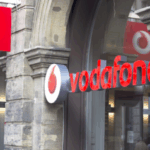A new report from the National Audit Office (NAO) has uncovered that small businesses are responsible for 81% of the £5.5 billion lost to deliberate tax evasion in the 2022-23 financial year. This comes despite the overall tax gap—the difference between tax owed and tax paid—falling from 7.4% in 2006 to 4.8% in the latest figures.
The report highlighted a sharp rise in the share of tax evasion attributed to small businesses, which has grown from 44% in 2018-19 to 60% in the most recent data. The NAO criticized HM Revenue & Customs (HMRC) for failing to adopt a targeted approach to address the growing issue, particularly in the retail sector, where widespread tax evasion practices such as abuse of the insolvency process are prevalent.
One of the most significant abuses involves businesses folding to evade tax debts, only to re-emerge as new entities. This practice alone cost HMRC over £500 million in 2022-23, yet the Insolvency Service disqualified just seven directors for such abuses, out of more than 6,200 disqualified directors during the same period.
The report also called attention to “electronic sales suppression,” where businesses manipulate their sales records to underreport revenue using specialised software. While HMRC has the power to fine businesses up to £50,000 for using these tools, the NAO suggested that these powers are not being fully enforced.
Despite these criticisms, HMRC has seen some success in combating VAT evasion, particularly by making online marketplaces responsible for collecting VAT on behalf of overseas retailers. This measure has generated an additional £1.5 billion annually. However, the NAO warned that gaps remain, with some overseas companies falsely presenting themselves as UK-based to avoid VAT obligations, exploiting the ease of setting up companies in the UK.
Gareth Davies, head of the NAO, stressed that HMRC has not adequately focused on common methods of tax evasion among small businesses and called for more systematic efforts across government. “Although tax evasion has been growing among small businesses, HMRC has so far lacked an effective response,” said Davies. He emphasized the potential for tighter controls and more aggressive compliance measures to yield substantial revenue.
In response, an HMRC spokesperson highlighted the agency’s record £843.4 billion in tax revenues collected last year, noting that the UK has one of the world’s lowest tax gaps. “The vast majority of businesses pay the tax that’s due,” the spokesperson said. “We will continue to use our civil and criminal powers against the determined minority who refuse to play by the rules.”
HMRC plans to collaborate with other agencies, including the Insolvency Service and Companies House, to address the concerns raised in the report and reduce tax evasion in both the retail and online sectors.










